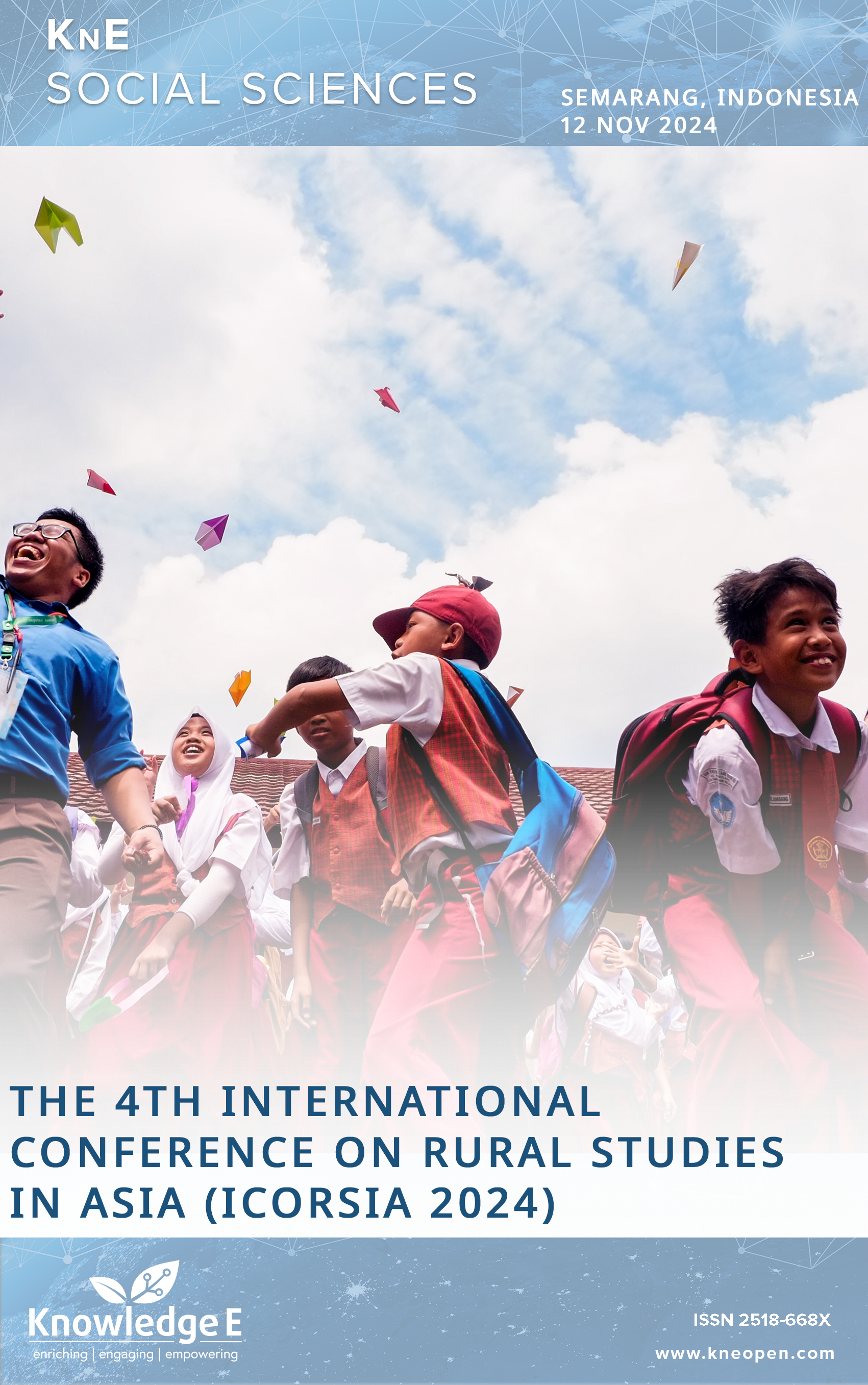Global Governance in the Management of Komodo National Park as a UNESCO World Heritage Site
DOI:
https://doi.org/10.18502/kss.v10i10.18661Keywords:
global governance, Komodo national park, sustainable tourism, UNESCOAbstract
Komodo National Park is a UNESCO World Heritage Site which holds significant ecological, cultural, and social value. This research examines the implementation of global governance in managing the park, focusing on coordination among international, national, and local actors. This research uses qualitative descriptive methods, including literature review and document analysis. The research highlights the complex coordination between the Indonesian government, international organizations such as the World Wide Fund for Nature (WWF) and UNESCO, and local communities. The approaches of governance involve species conservation in the Komodo Islands, rehabilitation of vital habitats, and sustainable tourism development. Advanced technologies such as satellite and drone surveillance are used to monitor illegal activities and ecosystem health. The biggest challenge in managing Komodo National Park lies in balancing conservation efforts with tourism-based economic development. To address this, a zonation approach and putting in place programs to train the locals in ecotourism would be one way forward. This research evaluates how sustainable coordination, integrated approaches, and stakeholder collaboration contribute to preserving the park’s universal value.
References
Stiglitz JE, Rodrik D. Rethinking Global Governance: Cooperation in a World ofPower. Oxford University Press; 2024.
Dellmuth L, Scholte JA, Tallberg J, Verhaegen S. Citizens, Elites, and the Legitimacy of Global Governance. Vol. 1. 2022. 1–206 p. DOI: https://doi.org/10.1093/oso/9780192856241.001.0001
SusantiE,NasirBaduM,UlfahSM.TheRoleOfUnescoAsAWorldHeritageCenterIn TheIssuesTourismProjects In KomodoNationalParkReviewedFromEnvironmental Concepts. Vol. 1. 2022.
Elfert M, Ydesen C. Global governance and the promissory visions of education: challenges and agendas. Comp Educ. 2024;60(3):361–76. DOI: https://doi.org/10.1080/03050068.2024.2371701
Mongi EM, Afifah F, Fauziah R, Rahallus S. Tinjauan perspektif ekologi politik: Persepsi masyarakat terhadap rencana pembangunan wisata premium di Taman Nasional Komodo, Pulau Komodo. Ecotourism and Environment Conservation. 2024 Feb 29;1(1). DOI: https://doi.org/10.61511/ecotour.v1i1.2024.673
Jehan C, Dale P, Afioma G. Puzzling Confluence of Conservation and Ecotourism in Komodo National Park. Indonesia; 2020.
Naufal MI. Akses Masyarakat Terhadap Sumberdaya Pariwisata Dalam Kawasan Taman Nasional Komodo. Kabupaten Manggarai Barat; 2019.
Mariati S, Parera AK, Rahmanita M. Analisis Keberlanjutan Taman Nasional Komodo sebagai Destinasi Wisata Berkelanjutan. Jurnal Ilmiah Pariwisata. 2022 Jul;27(2):153. DOI: https://doi.org/10.30647/jip.v27i2.1621
Auliya L. Muazzin. Implementasi United Nations Convention on Biological Diversity SebagaiUpayaPelestarianTamanNasionalGunungLeuser.JurnalIlmiahMahasiswa Bidang Hukum Kenegaraan [Internet]. 2018;2(2):369–82.
Schmitt TM.Globalculturalgovernance.Decision-makingconcerningWorldHeritage between politics and science. Erdkunde. 2009 Apr;63(2):103–21. DOI: https://doi.org/10.3112/erdkunde.2009.02.01
Zürn M. Public sphere and global governance. Philos Soc Criticism. 2024 Jan;50(1):255–77. DOI: https://doi.org/10.1177/01914537231203547
Sianipar IM, Lee CH, Wang HJ, Kim DC, Suryawan IW. Unraveling Factors Influencing Local Willingness to Participate in Sustainable Komodo Conservation and Protected Area Tourism. Forest and Society. 2024 Dec;8(2):350–71. DOI: https://doi.org/10.24259/fs.v8i2.32880
Nurbandi W. The political ecology of human-komodo dragon conflict: Uncovering the dysfunction of conservation and control in the Komodo National Park. Indonesia: SRRN; 2023. DOI: https://doi.org/10.2139/ssrn.4490886
Motivasi Simbolis Kunjungan Wisatawan ke Destinasi Pariwisata Berbasis Ekowisata Jery Christianto D, Anggito Adjie B, Dela Larasita I, Priscilia K, Furqan A, Asfahani Sauky M,etal. Journal of Applied Science in Tourism Destination. Journal of Applied Science in Tourism Destination. 2023;1(2).
Barnett M. Change in or of global governance? International Theory. Cambridge University Press; 2021. pp. 131–1343. DOI: https://doi.org/10.1017/S175297192000038X
Brent Edwards D, Okitsu T, Da Costa R, Kitamura Y. Organizational Legitimacy in the Global Education Policy Field: Learning from UNESCO and the Global Monitoring Report. Comp Educ Rev. 2017;62(1). DOI: https://doi.org/10.1086/695440
Marx A, Depoorter C, Fernandez de Cordoba S, Verma R, Araoz M, Auld G, et al. Global governancethroughvoluntarysustainability standards: Developments,trends and challenges. Glob Policy. 2024 Sep;15(4):708–28. DOI: https://doi.org/10.1111/1758-5899.13401
Bogers M, BiermannF, Kalfagianni A, Kim RE. The SDGsasintegrating force in global governance? Challenges and opportunities. Int Environ Agreement Polit Law Econ. 2023 Jun;23(2):157–64. DOI: https://doi.org/10.1007/s10784-023-09607-9
Lall R. Making Global Governance Accountable: Civil Society. States, and the Politics of Reform; 2023. DOI: https://doi.org/10.1111/ajps.12824
Published
How to Cite
Issue
Section
License
Copyright (c) 2025 KnE Social Sciences

This work is licensed under a Creative Commons Attribution 4.0 International License.

